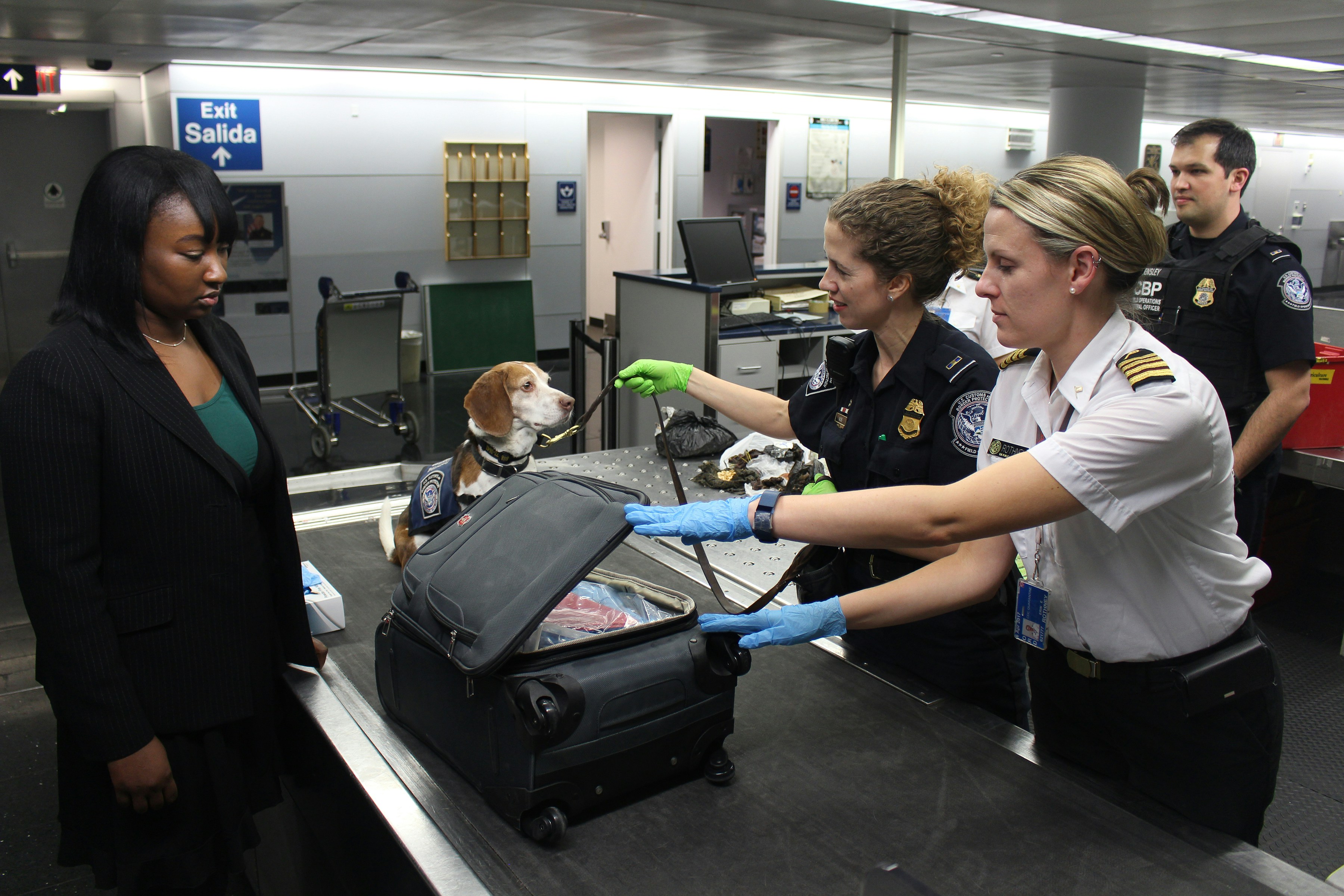Looking for peace of mind on your international trip? Discover the importance of purchasing travel insurance for comprehensive coverage and benefits.
Traveling to international destinations can be an exciting and enriching experience, but it is crucial to consider the need for travel insurance before embarking on your journey. From unexpected medical emergencies to lost baggage, a comprehensive insurance policy can provide much-needed peace of mind and financial protection. In this article, we discuss the importance of purchasing travel insurance for international trips and highlight its numerous benefits. Whether you are a frequent flyer or a first-time traveler, understanding the value of travel insurance is essential to ensure a worry-free and enjoyable adventure abroad.

This image is property of images.pexels.com.
Cost of healthcare abroad
Understanding the potential expenses
When traveling abroad, it is important to consider the potential costs of healthcare in different countries. Expenses for medical treatments and services can vary significantly from one country to another. Understanding the potential expenses will help you make an informed decision about purchasing travel insurance that includes coverage for healthcare abroad.
Quality and accessibility of healthcare in different countries
The quality and accessibility of healthcare services can also vary greatly from country to country. Some countries may have excellent healthcare systems with state-of-the-art facilities and highly skilled medical professionals, while others may have limited access to healthcare or lower standards of care. It is important to research and understand the healthcare system in your destination country to ensure you can receive the necessary medical treatment if needed.
Coverage for emergency medical treatments
Travel insurance can provide coverage for emergency medical treatments abroad. This coverage can include reimbursement for medical expenses, hospital stays, emergency surgeries, and medications. It is important to carefully review the policy to understand the coverage limits and exclusions, as well as any pre-existing condition clauses that may affect your eligibility for coverage.
Reimbursement for healthcare costs
In addition to emergency medical treatments, travel insurance can also provide reimbursement for non-emergency healthcare costs. This may include doctor visits, diagnostic tests, and prescription medications. Reimbursement for healthcare costs can help alleviate the financial burden of unexpected medical expenses while traveling abroad.
Cancellation and trip interruption
Recovering non-refundable expenses
One of the main benefits of travel insurance is the coverage for trip cancellation or interruption. If you are unable to travel or have to cut your trip short due to unforeseen circumstances, such as illness, injury, or a family emergency, travel insurance can help you recover non-refundable expenses. This can include the cost of flights, accommodation, tours, and other prepaid expenses related to your trip.
Coverage for trip cancellation
Travel insurance typically includes coverage for trip cancellation. If you have to cancel your trip before it even begins, due to a covered reason such as illness, injury, or severe weather, travel insurance can provide reimbursement for the non-refundable expenses you have incurred. This coverage can help protect your investment in your travel plans.
Coverage for trip interruption
If your trip is interrupted due to a covered reason, such as a medical emergency or a natural disaster, travel insurance can provide coverage for the additional expenses you may incur. This can include the cost of changing flights, rebooking accommodations, and arranging for alternative transportation. Trip interruption coverage can help you deal with unexpected disruptions to your travel plans.
Reasons for cancellation or interruption
Travel insurance covers a wide range of reasons for trip cancellation or interruption. Common covered reasons include illness or injury to you, a traveling companion, or a family member, natural disasters, terrorist acts, and job loss. It is important to carefully review the policy to understand the specific covered reasons and any exclusions that may apply.

This image is property of images.pexels.com.
Lost or delayed baggage
Value and importance of personal belongings
When traveling, we often carry valuable personal belongings such as electronics, jewelry, and clothing. If your baggage is lost, stolen, or delayed during your trip, it can be a major inconvenience and financial burden. Travel insurance can provide coverage for the value of your personal belongings, giving you peace of mind knowing that you will be compensated if your baggage is lost or delayed.
Risk of lost or stolen luggage
Lost or stolen luggage is a common occurrence while traveling. Baggage can get misplaced during transit or even stolen by thieves. The risk of losing your luggage or having it stolen is higher when traveling to unfamiliar places or through busy airports. Travel insurance can provide coverage for the loss or theft of your luggage, ensuring you are financially protected in case of such unfortunate events.
Compensation for lost or delayed baggage
If your baggage is lost or delayed during your trip, travel insurance can provide compensation for the value of your belongings. This can include reimbursement for the cost of replacing your lost items, as well as any necessary emergency purchases, such as clothing and toiletries, while you wait for your baggage to be recovered or delivered. Having this coverage can help you cope with the inconvenience and expense of lost or delayed baggage.
Claims process for lost luggage
In the unfortunate event that your luggage is lost or delayed, it is important to follow the claims process outlined by your travel insurance provider. This may involve reporting the loss or delay to the appropriate authorities, providing proof of ownership or purchase of your belongings, and submitting a claim form to the insurance company. It is important to keep all receipts and documentation related to your lost or delayed baggage to support your claim.
Emergency medical evacuation
Understanding the need for emergency evacuation
In certain medical emergencies, it may be necessary to be evacuated to a facility that can provide the required medical treatment. This can be due to the unavailability of specialized medical care locally or the need for immediate transport to a higher level of medical care. Travel insurance can provide coverage for emergency medical evacuation, ensuring that you can receive the necessary treatment in a timely manner.
Availability and cost of medical evacuation services
Emergency medical evacuation can be a complex and costly process. It may involve arranging for transportation by air or ground, coordinating with medical professionals and facilities, and ensuring the safety and well-being of the patient throughout the journey. The availability and cost of medical evacuation services can vary depending on the location and the severity of the medical emergency. Having travel insurance that includes coverage for emergency medical evacuation can help alleviate the financial burden of this potentially life-saving service.
Coverage for emergency transportation
Travel insurance can provide coverage for emergency transportation to the nearest appropriate medical facility. This can include the cost of air ambulances, ground ambulances, or other means of transportation necessary for the medical evacuation. It is important to carefully review the policy to understand the coverage limits and any exclusions that may apply to emergency transportation.
Arranging medical transportation
In the event of a medical emergency, it is important to contact the travel insurance provider as soon as possible to arrange for emergency medical transportation. The insurance provider will work with you to coordinate the necessary transportation and ensure that you receive the appropriate medical care. It is important to have all necessary information readily available, such as your policy number, location, and nature of the medical emergency, to expedite the process of arranging medical transportation.

This image is property of images.pexels.com.
Coverage for trip delays
Common causes of trip delays
Trip delays can occur due to a variety of reasons, such as inclement weather, mechanical issues with transportation, or labor strikes. These delays can disrupt your travel plans and result in additional expenses, such as hotel accommodations, meals, and transportation. Travel insurance can provide coverage for these additional expenses, helping you navigate unexpected delays and minimizing the impact on your trip.
Reimbursement for additional expenses
If your trip is delayed due to a covered reason, travel insurance can provide reimbursement for the additional expenses you incur as a result. This can include the cost of hotel accommodations, meals, and transportation during the delay. Reimbursement for additional expenses can help ease the financial burden of unexpected delays and allow you to continue your trip as planned once the delay is resolved.
Covering missed connections
Missed connections are a common occurrence when traveling, especially when there are multiple flights or transportation modes involved. A missed connection can result in extra costs for rebooking flights, accommodations, and other transportation. Travel insurance can provide coverage for these expenses, ensuring that you can reach your destination despite the missed connection and minimizing the impact on your travel plans.
Limits and exclusions in trip delay coverage
It is important to review the policy carefully to understand the limits and exclusions in trip delay coverage. Each policy may have different coverage limits and exclusions that apply to trip delays. Common policy limitations may include maximum reimbursement amounts per day, minimum length of delay required for coverage, and specific exclusions for certain types of delays, such as strikes or pre-existing conditions. Understanding these limits and exclusions will help you make an informed decision about the coverage that best suits your needs.
Accidental death and dismemberment
Understanding the risks of travel-related accidents
While traveling, we expose ourselves to various risks and potential accidents. These can include transportation accidents, falls, or other unforeseen events. Accidental death and dismemberment (AD&D) coverage provides financial protection in the event of a covered accident resulting in a fatal outcome or the loss of a limb or bodily function.
Coverage for accidental death
AD&D coverage can provide a lump sum payment to your designated beneficiary in the event of your accidental death while traveling. This coverage can help provide financial support to your loved ones during a difficult time, covering expenses such as funeral costs, outstanding debts, and ongoing living expenses.
Coverage for dismemberment
In the unfortunate event of a covered accident resulting in the loss of a limb or bodily function, AD&D coverage can provide a lump sum payment to you. This payment can help cover medical expenses, rehabilitation costs, and any necessary lifestyle adjustments following the dismemberment.
Assessing the need for AD&D coverage
Assessing the need for AD&D coverage is a personal decision that should take into consideration your individual circumstances, financial responsibilities, and risk tolerance. If you have dependents or financial obligations that would need to be supported in the event of your accidental death or dismemberment, AD&D coverage can provide peace of mind knowing that your loved ones will be taken care of financially.

Travel assistance and support
Access to emergency support services
Travel insurance often includes access to emergency support services. These services are available 24/7 and can provide assistance in various situations, such as medical emergencies, travel disruptions, or other unforeseen events. Access to emergency support services can be invaluable when facing challenges while traveling in a foreign country.
24/7 helpline for travel emergencies
One of the key components of travel assistance is a 24/7 helpline that you can call in case of travel emergencies. This helpline is staffed by professionals who can provide guidance, assistance, and advice in a wide range of situations. Whether you need help finding medical care, navigating a travel delay, or resolving a travel-related issue, the 24/7 helpline is there to support you.
Medical referrals and assistance
In the event of a medical emergency or need for medical care while traveling, travel assistance services can provide medical referrals and assistance. These services can help you find local healthcare providers, arrange for appointments, and facilitate communication with medical professionals in case of language barriers. The medical referrals and assistance provided can help ensure that you receive appropriate medical care while traveling.
Language interpretation services
Traveling to a country where you are not fluent in the local language can be challenging, especially in the event of a medical emergency or travel disruption. Many travel insurance policies offer language interpretation services to help bridge the communication gap. These services can provide language support in various situations, such as during medical consultations, interactions with local authorities, or when dealing with travel-related issues.
Pre-existing medical conditions
Coverage for pre-existing conditions
If you have pre-existing medical conditions, it is important to carefully review the coverage offered by travel insurance policies. Some policies may provide coverage for pre-existing conditions, while others may have exclusions or limitations. If you have pre-existing conditions, it is important to disclose them when purchasing travel insurance and to carefully review the policy to understand the coverage and any applicable waiting periods or exclusions.
Medical questionnaire and eligibility
When purchasing travel insurance, you may be required to complete a medical questionnaire to determine your eligibility and coverage for pre-existing conditions. The questionnaire typically asks about your medical history, current health status, and any pre-existing conditions. It is important to answer these questions truthfully and accurately to ensure that you are eligible for coverage and to avoid any potential claim denials due to misrepresentation.
Exclusions and waiting periods
Pre-existing conditions may have exclusions or waiting periods before coverage becomes effective. Exclusions are specific conditions or treatments that are not covered under the policy. Waiting periods are defined periods of time that must pass before coverage for pre-existing conditions becomes effective. It is important to carefully review the policy to understand any exclusions or waiting periods that apply to your pre-existing conditions.
Specialized policies for pre-existing conditions
For individuals with significant pre-existing medical conditions, specialized travel insurance policies may be available. These policies are specifically designed to provide coverage for individuals with pre-existing conditions and often have tailored coverage and pricing to accommodate their needs. If you have pre-existing conditions that may affect your eligibility for coverage under standard travel insurance policies, it may be worth considering specialized policies to ensure you have adequate coverage during your international trip.

Adventure and high-risk activities
Coverage for adventure sports
If you plan to engage in adventure sports or high-risk activities during your international trip, it is important to consider the coverage provided by travel insurance policies. Some policies may exclude coverage for certain adventure sports or have specific conditions and requirements for coverage. It is important to carefully review the policy to understand any exclusions or limitations that may apply to the activities you plan to participate in.
Extent of coverage for high-risk activities
The extent of coverage for high-risk activities can vary between travel insurance policies. Some policies may provide limited coverage or require the purchase of additional coverage specifically for high-risk activities. It is important to review the policy to understand the coverage limits, exclusions, and any additional requirements for coverage of high-risk activities.
Exclusions and limitations
Travel insurance policies often have exclusions and limitations that apply to adventure and high-risk activities. These exclusions and limitations may vary between policies but can include activities such as bungee jumping, skydiving, scuba diving, and off-road motorcycling. It is important to review the policy to understand the specific exclusions and limitations that apply to the activities you plan to participate in during your trip.
Importance of reviewing policy terms
When participating in adventure sports or high-risk activities, it is essential to review the policy terms and conditions to ensure that you have adequate coverage. Failure to disclose participation in these activities or failing to adhere to the policy requirements may result in denial of coverage for any related claims. It is important to read the policy carefully and ask your insurance provider if you have any doubts or questions about the coverage for adventure and high-risk activities.
Duration and frequency of travel
Short-term vs. long-term travel insurance
When purchasing travel insurance, it is important to consider the duration and frequency of your travel. Short-term travel insurance typically provides coverage for a single trip or a limited period of time, such as 30 or 60 days. Long-term travel insurance, on the other hand, provides coverage for an extended period of time, such as six months to a year. If you frequently travel internationally, an annual or multi-trip policy may offer more cost-effective coverage.
Benefits of annual/multi-trip policies
Annual or multi-trip travel insurance policies offer benefits for frequent travelers. These policies provide coverage for multiple trips within a specified time period, typically a year. The benefits of annual/multi-trip policies include cost savings compared to purchasing separate insurance for each trip, convenience of coverage for multiple trips without having to purchase insurance every time, and the assurance of continuous coverage for all your international travels.
Limits and restrictions on policy duration
Travel insurance policies often have limits and restrictions on the duration of coverage. Short-term policies may have a maximum coverage period, such as 90 or 180 days, while annual/multi-trip policies may have limits on the duration of each individual trip. It is important to review the policy to understand any limits and restrictions on policy duration to ensure that you have adequate coverage for the duration of your trip.
Factors influencing the need for coverage
The need for travel insurance coverage depends on several factors, including the destination, duration of travel, activities planned, and personal circumstances. Traveling to a country with high healthcare costs or limited access to quality healthcare may warrant the purchase of travel insurance with comprehensive medical coverage. The longer the duration of travel or the more frequent the international trips, the more beneficial an annual/multi-trip policy becomes. Personal circumstances, such as pre-existing medical conditions or high-value personal belongings, can also influence the need for travel insurance coverage. It is important to carefully consider these factors when deciding whether to purchase travel insurance for your international trips.
In conclusion, purchasing travel insurance for international trips is highly recommended. It provides coverage for potential healthcare expenses abroad, protects against trip cancellations and interruptions, compensates for lost or delayed baggage, ensures access to emergency medical evacuation if needed, covers expenses for trip delays, provides financial support in case of accidental death or dismemberment, offers travel assistance and support services, addresses coverage for pre-existing conditions, accounts for adventure and high-risk activities, and caters to the duration and frequency of your travel. Travel insurance provides peace of mind, allowing you to enjoy your international trips without worrying about financial risks and unexpected events that may arise.
















